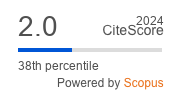Spontaneous Bleeding in Vestibular Schwannoma in Patients on Oral Anticoagulant Therapy: Report of Two Cases and Review of Literature
DOI:
https://doi.org/10.5644/ama2006-124.426Keywords:
Anticoagulants, Hemorrhage, Neuroma, Acoustic, Risk Factors, Vestibular SchwannomaAbstract
Objective. Anticoagulant therapy is a risk factor for repeated intratumoral hemorrhage and acute enlargement of a vestibular schwannoma (VS) with neurological deficits. Therefore, we describe two cases of patients on oral anticoagulant therapy with intratumoral hemorrhage in which anticoagulant therapy prior to surgical resection was discontinued. We also discuss other similar cases from the literature since this is a rare event.
Case Reports. We described the two cases of intratumoral hemorrhage in acoustic neurinoma and conducted a literature review of similar cases of patients with intratumoral hemorrhage in acoustic neurinoma who were also on oral anticoagulants. Both patients presented with CN-VII palsy prior to surgery; both also fully re- covered after surgery except for hearing loss on the tumor side. Our literature review found 50 cases of VS (reported as vestibular schwannomas in the literature) with intratumoral hemorrhage. From this total, 11 patients used oral anticoagulant therapy with reported poor outcomes and high mortality; 9 of these 11 cases were reported in the past 20 years. The incidence is expected to rise due to increased use of anticoagulant therapy due to onset of atrial fibrillation, atherosclerosis, and thromboembolism from longer human lifespan.
Conclusion. Anticoagulant therapy represents a risk factor for intratumoral hemorrhage and acute enlargement of VS tumor mass with neurological deficits.
Downloads
Published
Issue
Section
License
Copyright (c) 2023 Mirza Pojskić, Domagoj Gajski, Alisa Arnautović, Kenan I. Arnautović

This work is licensed under a Creative Commons Attribution-NonCommercial 4.0 International License.





